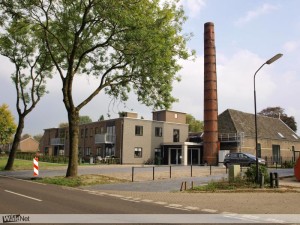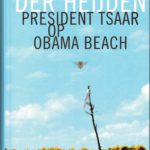Free Access To Oxford University Press Resources On Refugee Law
![]() In response to the refugee crisis in Europe, Oxford University Press has made more than 30 book chapters, journal articles, and pieces of content from online resources freely accessible to assist those working with refugees on the ground, as well as anyone who would like to know more about the framework of rights and obligations concerning refugees. The materials are structured around four key questions: who is a refugee, what rights do they have, what are transit states’ obligations, and what are the duties of the state where a refugee applies for asylum. Other useful resources are linked to at the bottom of the page.
In response to the refugee crisis in Europe, Oxford University Press has made more than 30 book chapters, journal articles, and pieces of content from online resources freely accessible to assist those working with refugees on the ground, as well as anyone who would like to know more about the framework of rights and obligations concerning refugees. The materials are structured around four key questions: who is a refugee, what rights do they have, what are transit states’ obligations, and what are the duties of the state where a refugee applies for asylum. Other useful resources are linked to at the bottom of the page.
- Who is a refugee?
- What rights do refugees have?
- What are the obligations imposed on states which refugees pass through en route to their destination of choice (transit states)?
- What are the obligations imposed on states in which refugees apply for asylum?
- Helpful Links
Read more: http://opil.ouplaw.com/page/refugee-law#
Dorpstimmerman tovert melkfabriek om in centrum voor zorg en wonen
In het Friese Garyp heeft het timmerbedrijf van Johan Timmermans de zuivelfabriek in zijn eigen dorp verbouwd. Het pand biedt nu onderdak aan zorgvoorzieningen, kinderopvang en levensloopbestendige woningen voor ouderen. Dankzij deze timmerman die bedenker, ontwerper, eigenaar, opdrachtgever, uitvoerder en verhuurder in één is.
De Timmermantsjoender, – tsjoender is tovenaar in het Fries -, onder die naam begon Johan Timmermans in 2001, hij was 19, een eigen onderneming vanuit de woonboerderij van zijn ouders. In de beginjaren hield hij zich nog bezig met kleine verbouwingen, dakramen plaatsen, badkamers verbouwen, deuren vervangen, dat soort klussen. De zaken gingen goed, zo goed zelfs dat hij twee jaar later al met zijn bedrijf kon verhuizen naar een eigen bedrijfsloods op het industrieterrein van Garyp. De klussen werden omvangrijker en uitdagender. Met als pronkstuk de herbestemming van een monumentale boerderij in het dorp Donkerbroek. Johan Timmermans: ‘Ik heb iets met mooie oude gebouwen. Deze boerderij stond op de nominatie om gesloopt te worden. Dat is voorkomen door de agrarische bestemming te veranderen. We hebben dit karakteristieke pand weer in ere kunnen herstellen door er een fraaie woning van te maken.’ Het succes van deze herbestemming riep een nieuwe ambitie in hem wakker. Dat was in 2009.
De hamvraag
In datzelfde jaar stond in zijn eigen dorp de directeurswoning van de voormalige zuivelfabriek te koop. Daar wilde de ambitieuze timmerman wel wonen. Eenmaal in gesprek over deze aankoop, polste Johan of hij ook de hele locatie met het ernaast gelegen fabriekspand kon kopen. Daar had de voorgaande veertig jaar een appendagefabriek voor machineonderdelen in gezeten. Johan Timmermans: ‘De eerste ingeving is door de bank genomen dat je gaat slopen om iets nieuws op zo’n fabrieksterrein te bouwen.’ Dat lag ook voor de hand. Maar met de klus in Donkerbroek nog vers in het geheugen ging zijn voorkeur er naar uit om het gebouw te behouden. De melkfabriek was een begrip in het dorp, een niet weg te denken gebouw. Hij nam zich bovendien voor om bij de keuze voor een nieuwe bestemming ook uit te zoeken hoe dit ten goede kon komen van de dorpsgemeenschap. Johan Timmermans: ‘Tijdens een rondgang door de fabriek viel me gelijk op dat het gebouw een heel eigen karakter heeft. Ik zag ook genoeg potentie om er een nieuwe bestemming aan te geven. De hamvraag was alleen: Wat stop je er dan in?’ De jonge ondernemer is als eerste op de huisarts in het dorp afgestapt; die zat met zijn praktijk in een noodcabine. Johan: ‘Toen ik over mijn verbouwplannen voor de fabriek vertelde, was er van zijn kant meteen interesse. Vanaf dat moment ben ik me gaan oriënteren in de zorg; je zet natuurlijk geen garage of een schildersbedrijf naast de praktijk van een dokter.’ Read more
Middle East Studies Association ~ Letters On Turkey
Prime Minister Ahmet Davutoğlu
Office of the Prime Minister
Başbakanlık 06573
Ankara, Turkey
Via facsimile +90 312 417 0476
Dear Prime Minister Davutoğlu:
We write on behalf of the Middle East Studies Association (MESA) of North America and its Committee on Academic Freedom to underscore for the third time our deep concern over the disciplinary investigations and criminal prosecutions that have been undertaken against scholars who signed a petition for peace in the Kurdish regions of the country (“Peace Petition”). In our previous letters on this matter, dated January 14, 2016 and February 22, 2016, we wrote in response to the immediate aftermath of a government-initiated campaign of intimidation triggered by President Recep Tayyip Erdoğan’s speech describing the signatories as “so-called academics” and “traitors,” and the broad pattern of persecution that subsequently emerged, encompassing suspensions and terminations of academics from positions at universities, detention and interrogation of faculty members by over-zealous prosecutors, and a spate of threats and attacks against academic signatories by vigilante actors. We now write in response to the disturbing degeneration of the situation in the three weeks since we last wrote. The violations of academic freedom in Turkey now include the pre-textual use of antiterrorism laws to arrest academics, the trampling of separation of powers and basic rule of law requirements to enable the executive to manage a campaign of prosecutions against petition signatories, and new proposals to further broaden terrorism laws to encompass the protected activities of academics, journalists, politicians and NGO advocates. Taken together, the events of the last few weeks, and especially the developments on March 15, 2016, signal that your government is willing to eviscerate basic human rights protections to punish critics of your policies towards the Kurdish community in Turkey.
MESA was founded in 1966 to promote scholarship and teaching on the Middle East and North Africa. The preeminent organization in the field, the Association publishes the International Journal of Middle East Studies and has nearly 3000 members worldwide. MESA is committed to ensuring academic freedom and freedom of expression, both within the region and in connection with the study of the region in North America and elsewhere. The detention, interrogation and arrest of academics Esra Mungan, Kıvanç Ersoy and Muzaffer Kaya represent a new escalation of government action against signatories. Professors Mungan, Ersoy and Kaya were singled out for prosecution (together with a fourth academic, Meral Camcı, who has so far avoided interrogation and arrest by virtue of being out of the country) because of a meeting they conducted on March 10, 2016 at which they reiterated their call for peace on behalf of the Academics for Peace/Istanbul, a subset of the signatories of the original petition. In response, the prosecutor’s office detained the three professors, interrogated them and immediately issued arrest warrants against them, taking them into custody on charges of supporting terrorism. The theory the government appears to rely on is that the peace petition signatories acted in coordination with the PKK because an individual associated with that organization, Bese Hozat, had earlier called for intellectuals to support Kurdish self-governance. This spurious allegation has no basis. The claim that a petition calling for the government to desist from military action in the Kurdish provinces and resume a peace process amounts to support for terrorism represents a staggering threat to freedom of expression and academic freedom in Turkey. By the government’s logic, any speech, research, writing, opinion, organizing or demonstration supportive of Kurdish rights may be conflated with support for terrorism.
Read more: http://mesana.org/letters-turkey
ScienceNET ~ Albert Einstein Documentary
WHO ~ Urban Health: Major Opportunities For Improving Global Health Outcomes, Despite Persistent Health Inequities
 New data on the health of city-dwellers in almost 100 countries show that as the world’s urban population continues to grow, health inequities – especially between the richest and poorest urban populations – are a persistent challenge, according to a report by WHO and the United Nations Human Settlements Programme (UN-Habitat).
New data on the health of city-dwellers in almost 100 countries show that as the world’s urban population continues to grow, health inequities – especially between the richest and poorest urban populations – are a persistent challenge, according to a report by WHO and the United Nations Human Settlements Programme (UN-Habitat).
For example, only half of households in urban areas of 91 countries with comparable data have access to piped water, with the richest 20% of households being 2.7 times more likely to have access to piped water than the poorest 20%. In Africa, this ratio is closer to 17 times.
About 3.7 billion people live in cities today. A further 1 billion people will be added by 2030, with 90% of the growth being in low- and middle-income countries. This intensifies the need to realize the Sustainable Development Goal (SDG) target of ensuring universal health coverage (UHC): that all people obtain the health services they need without suffering financial hardship when paying for them, by 2030.
Health inequalities undermine progress
The report finds that in 79 low- and middle-income countries, children in the poorest one fifth of urban households are twice as likely on average to die before their fifth birthday compared with children in the richest fifth. In nearly 9 of 10 countries for which comparable data was available, the urban poor did not achieve the Millennium Development Goal target for reducing under-five mortality.
Read more: http://who.int/urban-health-report/en/
Srinath Perur ~ Story Of Cities #11: The Reclamation Of Mumbai – From The Sea, And Its People?
Of all the ways in which Mumbai has been called a city of dreams, at least one is literal. It is sometime in the late 18th century, and the engineers of the East India Company in Bombay are losing a battle against the sea. They’re dumping boatloads of stone into Worli creek to build an embankment, but it has collapsed once and it collapses again.
That’s when an engineer named Ramji Shivji Prabhu has a dream: the goddess Mahalakshmi and two others inform him their stone idols lie submerged in the creek. Can some space be made for them on land? Prabhu has them fished out and installed in a shrine built nearby on land gifted by the administration. The wall holds.
This story was found in a bakhar, a Marathi literary form that recounts colourful histories, and may seem a little fanciful for our times. But that embankment – the Hornby Vellard, completed in 1784 – was very real and can be said to have given shape to the modern city of Mumbai (the official name since 1995). It was built at the initiative of William Hornby, then governor of Bombay, and over the next few decades was followed by the construction of causeways to link the seven islets separated by sea and swamp.
Read more: http://www.theguardian.com/mumbai



